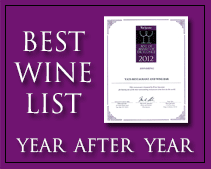The Historical Jesus
April 19, 2011.
THIS week, it would do your soul some good if you take a break from malls and other trivial pursuits and join the rest of Christendom in remembering the passion and death of Jesus Christ.
You don’t have to be a Catholic or a Christian to appreciate what this great man did for all mankind. Every good deed that was ever done in history, every good idea ever thought, every good feeling ever felt can be directly or indirectly attributed to him.
Of course, some of the most atrocious and terrible acts ever committed in history were done in his name as well, but that’s the fault of misguided followers who perverted his teachings.
All great religions in the world teach faith, hope and love, too, and have made their respective positive contributions to history, but their founders — Mohammed, Buddha, Confucius, Moses — never lived those ideals the way Christ did, nor did they suffer martyrdom for them.
To think that this man never took a college degree, never owned a property, never had money in the bank, never wrote a book — all the things we associate with success — and yet no one has changed the world or altered the course of history as much as he has.
Skeptics, however, still claim that the inspirational Jesus described in the Gospels is not the same as the real Jesus of history, and that his early followers merely wove stories to elaborate his life and exaggerate his death as part of their campaign to get new converts.
You’d be surprised to know that historians and scholars have been debating the same issue since the dawn of Christianity. And if present-day historians and scholars are still at it, it means the issue remains unresolved, and God probably wants it that way so that Christians will rely on their faith rather than on historical evidence.
Those of you who don’t trust the Gospels as historical documents (because they were written by disciples with obvious agenda) can take a look at some non-Christian sources of data on the historical Jesus.
For example, Pliny the Younger, governor of a Roman province, reported to the Emperor in A.D. 112 that some followers of “Christus” had begun denying their religion and instead returned to worshipping the emperor’s image. (If this boot-licking governor wanted to please his boss, he could have merely denied the existence of this “Christus.” Apparently, even the pagan and cosmopolitan Romans at the time had accepted the fact of his existence.)
In A.D. 117, Roman historian Tacitus wrote in his Annals about Emperor Nero’s persecution of Christians. He said, “Nero inflicted the most exquisite tortures on a class hated for their abominations, called Christians by the populace. Christus, from whom the name had its origin, suffered the extreme penalty during the reign of Tiberius at the hands of one of our procurators, Pontius Pilatus.”
Tacitus described Christianity as “a most mischievous superstition, thus checked for the moment, again broke out not only in Judaea, the first source of the evil, but even in Rome, where all things hideous and shameful from every part of the world find their center and become popular.”
Another Roman historian, Gaius Suetonius Tranquillus (born A.D. 69, died A.D. 140) wrote, “As the Jews were making constant disturbances at the instigation of Chrestus, he (Emperor Claudius) expelled them from Rome.” (Some scholars, however, point out that what appears to be a misspelling of Christ was actually a common Roman name.)
In A.D. 93, Jewish-Roman historian Flavius Josephus, who was born within
10 years of Jesus’ crucifixion, mentioned in his Antiquities of the Jews the name James as “the brother of Jesus, who was called Christ.”
In a separate passage, he wrote, “At this time there was a wise man who was called Jesus. And his conduct was good, and he was known to be virtuous and many people from among the Jews and the other nations became his disciples. Pilate condemned him to be crucified and to die. And those who had become his disciples did not desert his discipleship. They reported that he had appeared to them three days after his crucifixion and that he was alive; accordingly, he was perhaps the Messiah concerning whom the prophets have recounted wonders.”
In A.D. 73, a Syrian philosopher, Mara bar Serapion, sent his son a letter from prison in which he assured him that when wise men are oppressed, God punishes their oppressors. He wrote: “What advantage did the Athenians gain from murdering Socrates? Famine and plague came upon them as a punishment for their crime. What advantage did the men of Samos gain from burning Pythagoras? In a moment their land was covered with sand. What advantage did the Jews gain from executing their Wise King? It was just after that that their kingdom was abolished.”
He continued, “God justly avenged these three wise men: the Athenians died of hunger; the Samians were overwhelmed by the sea; and the Jews, desolate and driven from their own kingdom, live in complete dispersion. But Socrates is not dead, because there is Plato; neither is Pythagoras, because there is the statue of Juno; nor is the Wise King, because there is the new law he laid down.”
The philosopher was referring, of course, to Jesus, who had been called “King of the Jews” whose crucifixion in A.D. 30 was followed by the Jewish-Roman War in A.D. 70 where Jerusalem was destroyed and the Jews dispersed all over the world (the Diaspora).
The Babylonian Talmud also has this passage: “On the eve of Passover they hung Yeshu (Jewish for Jesus). Forty days beforehand the crier went around declaring that Yeshu was going to be stoned for practicing witchcraft, for enticing and leading Israel astray.”
Historian Julius Africanus (A.D. 221) described events that the Gospels said accompanied the crucifixion: “There pressed a most fearful darkness, and the rocks were rent by an earthquake, and many places in Judaea and other districts were thrown down.”
Second-century Roman-Syrian satirist Lucian wrote, “The Christians, you know, worship a man to this day — the distinguished personage who introduced their novel rites, and was crucified on that account. You see, these misguided creatures start with the general conviction that they are immortal for all time, which explains the contempt of death and voluntary self-deception which are so common among them. It was impressed on them by their original lawgiver that they are all brothers.”
To me, however, the most convincing evidence comes from a Hellenistic Jew who actually lived during Jesus’ time. He trained as a Pharisee in a rabbinical school in Jerusalem, became a member of the Sanhedrin and a leading persecutor of the early Christians. He personally witnessed the execution of St. Stephen just two years after Jesus’ crucifixion. Only a few months later, he converted and became the greatest Christian missionary. The religion that Jesus started wouldn’t have spread without the intellectual sophistication and communication skills of this writer-preacher.
His name: Saul of Tarsus, otherwise known as St. Paul the Apostle.
Source: http://www.sunstar.com.ph/pampanga/opinion/2011/04/18/tantingco-historical-jesus-151107
The wines of Yats Wine Cellars are designed for the matured wine lovers looking for wines that are interesting, not necessarily impressive, and at a fair price that is usually below those of a comparable big names, and from a matured vintage from 20 years or older. There are over 2000 selections of wine at Yats that fit that description.
If Philippines is part of an upcoming travel and holiday plan, wine lovers might want to visit Clark Freeport Zone just 70 minutes from Manila. This bustling new city that is slated to replace Manila as the new capital of the Philippines has the largest wine shop called Clark Wine Center. Vintages span over a century and the selection of old- and new-world wines covers all major wine regions are all available at this top-rated wine shop near Manila. Pampanga Philippines is a fast growing province. Growth in major cities such as San Fernando, Angeles City and Clark Freeport Zone has given rise to a strong demand for luxury goods, upscale dining and quality living. Absence of a good wine shop for fine vintage wine has caused considerable inconvenience to the affluent community which is forced to drive down to Manila to purchase their wines.
Yats Wine Cellars is generally regarded by Asian and Philippines wine lovers as the best wine supplier in the Philippines. This Wine Shop in Clark Philippines releases very rare wines for wine lovers in Asia.
Wine lovers from Japan, Korea, Hong Kong, Thailand and Indonesia travel to Philippines Clark Freeport to purchase these limited rare bottles of fine vintage wine.
Leading Philippines wine supplier known for its line of fine vintage wines, Yats Wine Cellars was established in 2000 to address the requirement of a growing population of wine enthusiasts in the Philippines. Yats Wine Cellars caters to the discerning client who requires these qualities in their wines: (1) excellent value, (2) large selection of labels and vintages to choose from and (3) wines properly aged for full enjoyment.
http://www.ClarkWineCenter.com
Getting to this wine shop in Pampanga Angeles City Clark Freeport Zone Philippines from Manila
Getting to the Clark Wine Center wine shop from Manila is quite simple: after entering Clark Freeport from Dau and Angeles City, proceed straight along the main highway M A Roxas. Clark Wine Center is the stand-along white building on the right, at the corner A Bonifacio Ave. From the Clark International Airport DMIA, ask the taxi to drive towards the entrance of Clark going to Angeles City. From Mimosa, just proceed towards the exit of Clark and this wine shop is on the opposite side of the main road M A Roxas.
Clark Wine Center
Bldg 6460 Clark Observatory Building
Manuel A. Roxas Highway corner A Bonifacio Ave,
Angeles Clark Freeport Zone, Pampanga 2023
0922-870-5173 0917-826-8790 (ask for Ana Fe)
YATS Wine Cellars
Manila Sales Office
3003C East Tower, Phil Stock Exchange Center,
Exchange Rd Ortigas Metro Manila, Philippines 1605
(632) 637-5019 0917-520-4393 ask for Rea or Chay
Best place to buy wine in Clark Pampanga outside Manila near Subic and Angeles City Philippines is Clark Wine Center.
Wedding couples looking for wedding reception venues and beach wedding venues can log on to this Philippines Wedding Venue web site for free information and assistance:
http://www.PhilippinesWeddingVenue.com
While in Clark, it might be a good idea to enjoy an evening of wine-and-dine in the fine dining Yats Restaurant and Wine Bar that features an award winning 2700-line wine list. It is located in Mimosa Leisure Estate of Clark Freeport Zone. For more information, visit http://www.YatsRestaurant.com
YATS Leisure Philippines is a developer and operator of clubs, resorts and high-class restaurants and wine shops in Clark Angeles Philippines http://www.YatsLeisure.com
Looking for famous tourists spots, places to visit and see, relax and unwind in Clark, Pampanga, Philippines? You may want to check out these sites also:
http://www.HotelClarkPhilippines.com
http://www.ClarkPhilippines.com
http://www.YatsWineCellars.com
You can skip to the end and leave a response. Pinging is currently not allowed.







